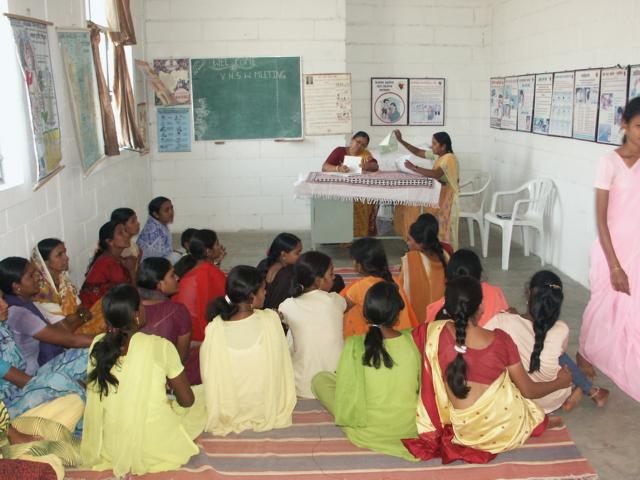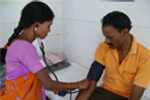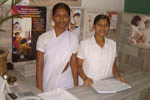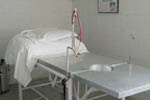Every year the Ecumenical Sangam offers a four and a half month training course to young women (who have successfully completed their 10th grade examinations in education) from the rural villages and urban slums to become Village Health and Social Workers (VHSW). The course provides a basic medical training as well as an awareness-building programme on various social issues.
The course enables the participants to
• give first aid
• recognise potentially dangerous diseases (like malaria) and emergencies, and give an initial treatment before referral
• diagnose and give treatment for the most common diseases (including injections)
• examine pregnant women and newborn babies
• offer counselling on HIV, family planning, nutrition, and other health-related matters.
With social work, the VHSWs learn how to approach the difficult subjects like poverty, dowry, alcoholism in the family and unemployment, by conversing with the villagers and slum dwellers and helping them to develop strategies to deal with and improve their situations. The VHSWs make home visits whenever required, conducting ongoing check-ups on pregnant women and their child before and after the birth. They invite the villagers on a regular basis to information-events about special topics. Whenever necessary, the VHSWs recommend and sell medication to their patient, which means on the one hand an additional income for the VHSWs and on the other hand saves the patient the sometimes long, tedious and expensive ride to the nearest pharmacy.
Every month, the Sangam’s Health Team visit each VHSW in their village. The meeting allows the VHSWs to discuss current problems, upgrade medical knowledge and replenish their stock of medication. Every two months, all VHSWs come together for a day in the Base Centre in Bamhani to share their experiences, refresh and update their medical and social work skills through seminars, and take examinations.
The VHSWs earn 5 Rupees per hour (up to 4 hours a day) and make a small profit by selling medication. In our opinion the system of trained health workers in the rural areas has a lot of advantages in comparison with a centralised health service. First of all, it provides the basic service where it is needed, and saves patients time and money in the case of a minor disease that can be successfully treated on site. In the case of more dangerous illnesses a quick referral to Mamta Hospital or to a specialist Hospital or Clinic in Nagpur can be organised. The money spent on treatment stays in the villages and the opportunity to work as a VHSW offers one more person in the village a living without commuting.
A further benefit for the VHSW is that after gaining experience she can apply for a place on the Trained Birth Attendant (TBA) Course to extend her knowledge and nursing experience and train to move into full time nursing work in one of Nagpur's Clinics or Hospitals or in the Sangam's Health Team.
 .JPG)
|




